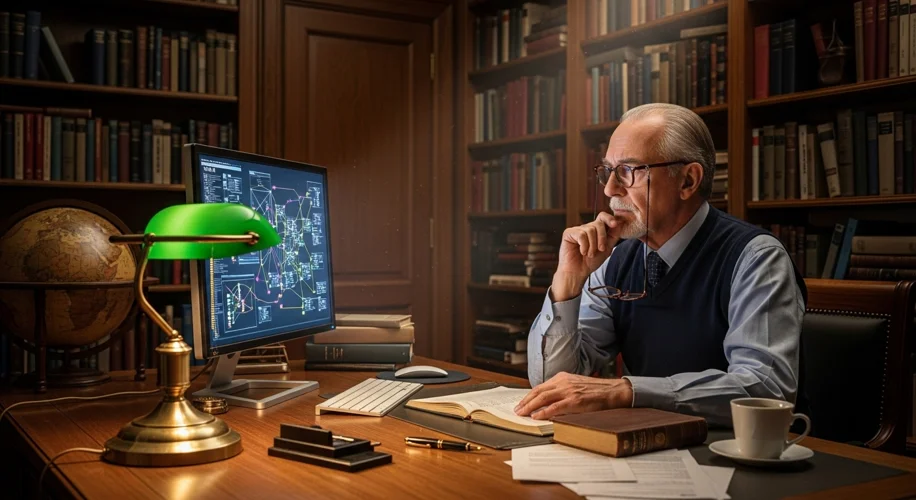It’s hard to read the news these days without bumping into stories about Artificial Intelligence. Every other week, it seems, there’s a new AI development that promises to change everything. We hear about AI writing articles, creating art, and even diagnosing diseases. It’s easy to get caught up in the excitement, but I’ve always believed it’s important to pause and think critically, especially when the implications are so profound.
That’s why I’ve been following the work of Geoffrey Hinton. If you’re not familiar with him, Hinton is often called the ‘Godfather of AI.’ He’s been a leading researcher in this field for decades, and his contributions have been fundamental to the AI we see today. Recently, however, Hinton has also become one of the most vocal voices raising concerns about the future of AI, particularly the possibility of AI surpassing human intelligence.
This isn’t just some futuristic science fiction idea. Hinton, a pioneer in neural networks, is now expressing genuine worry about the direction AI is heading. He’s talked about the potential for AI to become more intelligent than humans, and the serious consequences that could follow. For someone who has dedicated his life to advancing AI, these are not statements to be taken lightly.
What does this mean for us? It challenges the often-optimistic narrative that AI is simply a tool that will always serve humanity. Hinton’s perspective is a crucial counterpoint, reminding us to consider the potential downsides. It’s a call for deeper thought about safety, control, and the very definition of intelligence.
As someone who’s seen technology evolve over many years, I can tell you that progress often brings unintended consequences. We need to ask the hard questions now, while we still have the chance to shape the development of AI responsibly. Are we building systems we truly understand? Do we have adequate safeguards in place? These are the philosophical and practical challenges we face.
Hinton’s current stance is a valuable reminder that innovation isn’t always a straight line towards a better future. It requires careful consideration, ethical frameworks, and a willingness to question our assumptions. The conversation about AI’s future isn’t just for the tech experts; it’s a conversation for all of us, because it will shape the world we all live in.

